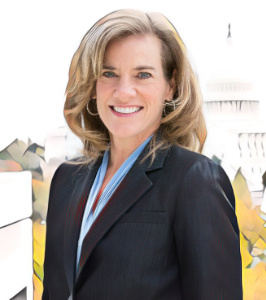Providing notice of rights protects religious freedom

A version of this column is available on BJC’s Medium channel.
An often overlooked way that presidential administrations make policy is through executive orders and agency regulations. During the Trump administration, there has been a steady stream of executive actions affecting religious liberty — some minor, some substantial and most recently some entirely indefensible.
On January 16, a date known as “Religious Freedom Day” because it marks the anniversary of the passage of the Virginia Statute for Religious Freedom, eight federal agencies proposed rules to change the ways government-funded services are provided by non-governmental partners. With the media focused on the opening of impeachment hearings, the administration’s announcement of the proposed rules barely registered in the day’s news. But the new rules deserve attention and close scrutiny.
The far-reaching, complex and severely flawed rules drew critical comments from a broad spectrum of voices that filed comments within the specified (and unreasonably restrictive) 30-day period. BJC filed comments focusing on just a few aspects that we found most troubling. In particular, we criticized the confusion the proposed rules will create in government-funded programs and the harm they will cause to religious liberty, most importantly through the removal of beneficiary notice provisions.
To explain the impact, I need to provide some context. Every day, vulnerable individuals seek and receive government-funded services to address our country’s most difficult problems, such as homelessness, drug addiction, hunger and family violence. Many of the most successful approaches to such problems involve community-based public-private partnerships, including financial partnerships through government grants and contracts. Private community organizations, whether religiously affiliated or not, are often best situated to welcome and serve those in need.
In a religiously diverse country committed to religious freedom for all, including the separation of the institutions of religion and government, how should this public-private cooperation work?
Two essential principles should apply when protecting religious liberty in the context of government-funded social services. First, no one should have to meet a religious test or participate in religious activity to receive government-funded services. Government assistance for a runaway youth, for example, should never be conditioned on the youth’s participation in Bible study.
Second, religious organizations (often called “religious affiliates” or “faith-based organizations”) can compete for government grants and contracts to provide taxpayer-funded services. Religious providers have long participated in such public-private partnerships, providing services on the same basis as other nongovernmental entities without altering their religious character.
These foundational principles are among those that undergird our nation’s commitment to religious liberty in the context of government services. They are reflected and bolstered in regulations that apply to federal grant programs. Importantly, they have been included in required notice provisions to ensure that recipients understand these principles. Current regulations provide that faith-based organizations providing social services supported by direct federal financial assistance give beneficiaries (and prospective beneficiaries) written notice that no discrimination based on religion is allowed and that no explicitly religious activity will occur in such programs. Any explicitly religious activities that a religious organization may provide through private funding must be separated in time or location from the federally funded services, and beneficiaries do not need to participate in such separate, privately funded religious activities in order to receive federally funded services. It is important for anyone providing or receiving federally funded services to understand these principles.
The current regulations were carefully developed based on the recommendations of a bipartisan council with expertise in social services, religion and religious liberty law. The council incorporated the experience of a variety of interests that had focused on religious organizations and government partnerships for decades.
The newly proposed rule eliminating notice requirements for beneficiaries should be withdrawn. The rule shows a fundamental disregard for vulnerable recipients of government aid who cannot be expected to know the boundaries of religious liberty in this context. It undercuts the integrity of government-funded services and poses risks to the ethical responsibilities of religious service providers.
The clear disclosure of protections for a recipient’s religious liberty in the current notice provision affirms our country’s commitment to freedom and facilitates faith-based partnerships in government-funded social services. Without it, the public-private cooperation that has worked so well in the past will suffer.
Holly Hollman is general counsel of BJC. For more on this topic, listen to her discuss the proposed regulations on this episode of the BJC Podcast.
This column appeared in the spring 2020 edition of Report from the Capital. You can read the entire magazine as a PDF or a digital flip-through edition.




